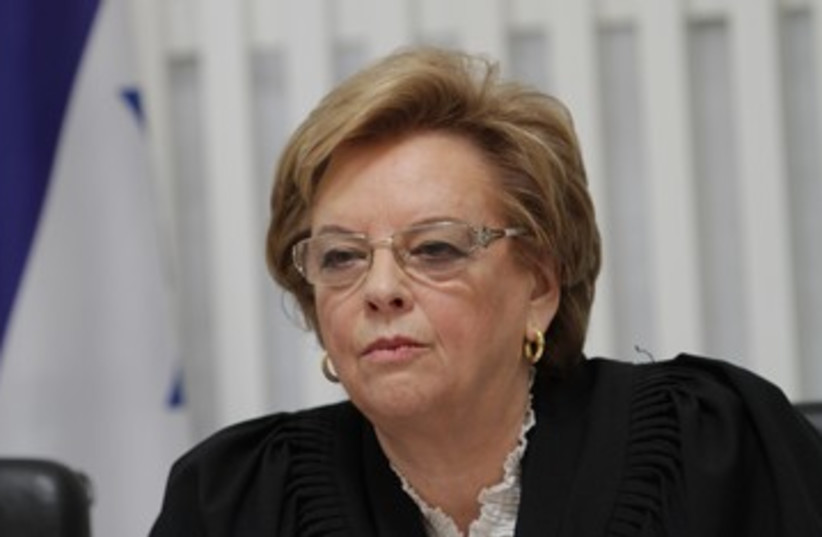Former prime minister Golda Meir once quipped: “Whether women are better than men, I can say they are certainly no worse.” It was a jest with a certain amount of seriousness, made by the Jewish State’s one and only female political leader.
Israel has long touted Meir’s reaching the pinnacle of Israeli politics as a demonstration of the country’s progressiveness and tolerance. However, it has taken a few more decades to witness the great and vital strides women have made in Israel, especially in civil society organizations.
According to a 2022 study by Tel Aviv University, women represent around 70% of staff in Israeli social change organizations. As someone who works closely with Israeli civil society organizations and on elevating their role in the international arena, it is easy to demonstrate that women are their backbone and that, when given equal opportunity, can demonstrate that they have what it takes to be leaders.
In recent years, women have been rising to the top in medicine, hi-tech, industry, diplomacy, education, and academia. For example, women comprise nearly 54% of judges in Israel, including the recently retired president of the Supreme Court Esther Hayut.
For the betterment of Israeli society the gender gap is closing in many arenas. Unfortunately, the one area where women are still massively underrepresented is in politics. As the years pass, Meir has became the exception that proves the rule.

It is time to take stock, especially now after such a traumatic event. The pogrom of October 7 was the bloodiest day in the history of the Jewish people since the end of the Holocaust, but it also showed many sides to women’s abilities.
Women in the IDF
Quite by chance, a group of women became the first female armored crew in Israel, and perhaps the world, to participate in active battle, when a group of women grabbed their tank, sped down to the Gaza border, and took out dozens of terrorist infiltrators, saving countless lives.
This story of quick thinking heroism proved that women can fight in battle.
Despite the impressive representation of women in civil society, the number of women in decision-making positions within the Israeli government is still low.
It’s no secret that an Israeli prime minister needs to have an understanding of security issues as well military experience, but the current war against Hamas has created opportunities for women to prove themselves in this field too.
Furthermore, the issue of violence against women, during the war and even before, is covered extensively in the media. The attention these evil acts receive is crucial. That this issue is finally being discussed and reported – instead of being swept under the proverbial rug – is a function of the fact that women’s role in society has increased. Combating violence against women has become a priority and is now receiving the attention it deserves.
As a former IDF officer and someone who has worked in senior positions in the Jewish world, I see what is possible and that this is an opportunity that has emerged from the crisis.
Since October 7, women have been seen assuming leadership positions in the war effort, demonstrating bravery and resilience in social and national campaigns, becoming leaders in the hostage families forum, taking charge of the home front, and demonstrating grit and determination in the face of military and security challenges.
We can see how the place of women in Israel and the IDF has indelibly changed, and our leadership needs to keep up.
On International Women’s Day, to be marked this week, we need to start having a new conversation about the place and role of women (not in terms of rights or duties, this debate has thankfully ended). We must ensure that women have a central place at the table with meaningful and impactful representation.
Women see things differently and present a varied perspective. They can challenge all-male thinking when it becomes stale and predictable.
The responsibility also lies on us women, who need to cast off prejudice and stereotypes in order to advance to center stage. Israel and the Jewish world have made enormous strides in the past few decades, but there is much more to do.
October 7 has forced us to think differently in so many ways, challenging all of our conceptions. It’s not just the 51% who need equality in decision-making. Our country, society, and leadership need women at all levels to make our society better and safer.
Greater stability requires greater representation in decision-making positions, and arguably the most unrepresented population, statistically, is women.
This must change as we redefine Israel’s future at this critical junction.
Women are not better than men, but they are also no worse. It is time to meet the challenge laid down decades ago by our one and only female leader.
The writer is the executive director of the Center for Jewish Impact and a former deputy CEO of the World Jewish Congress.
